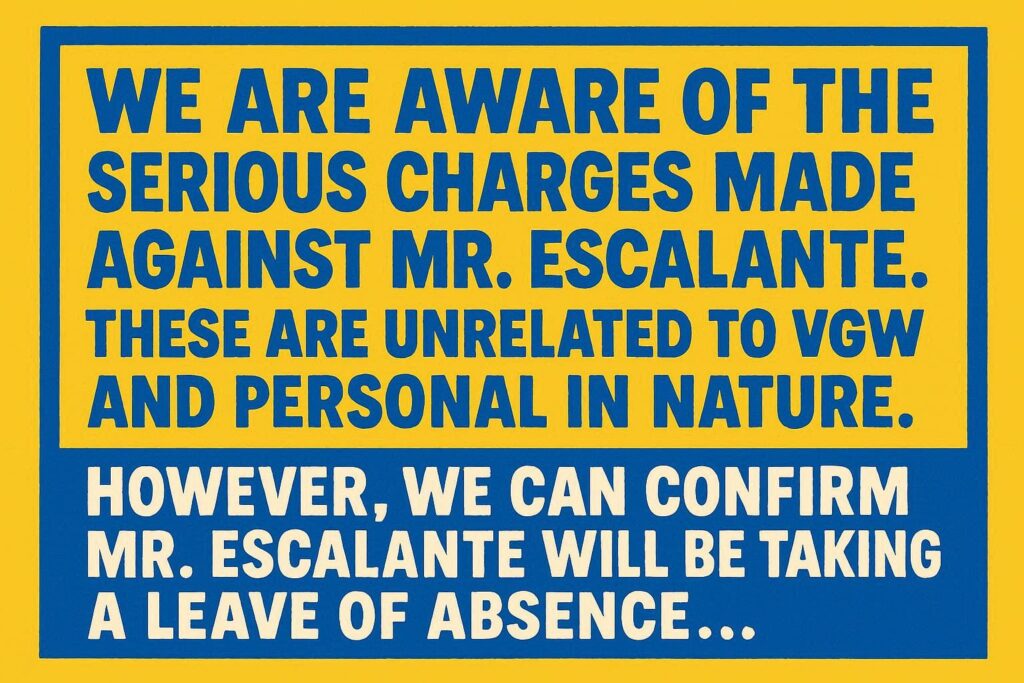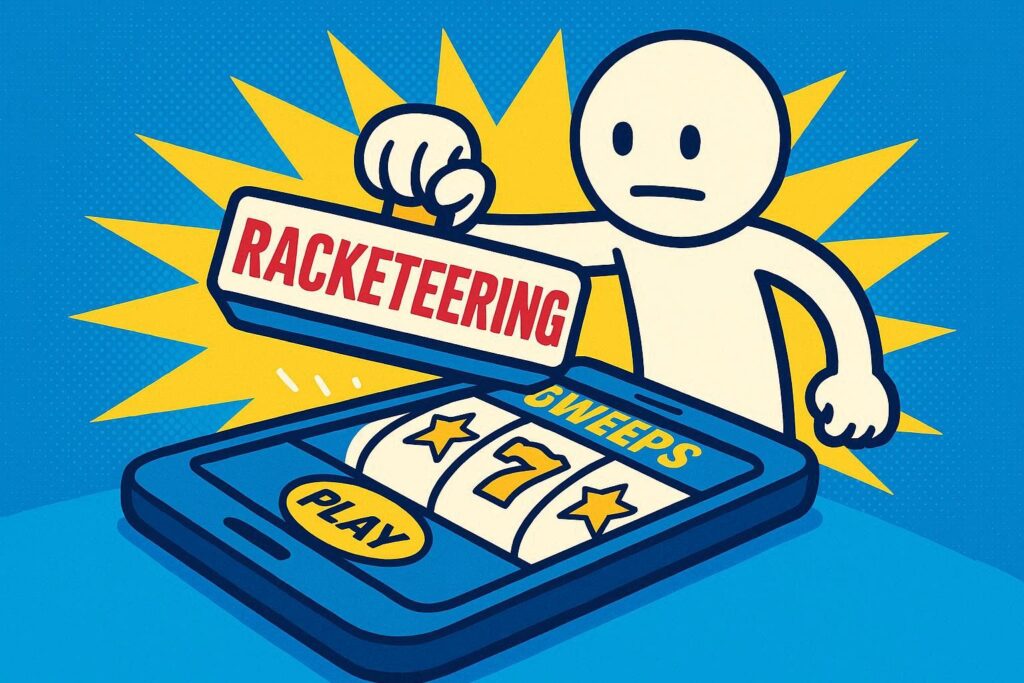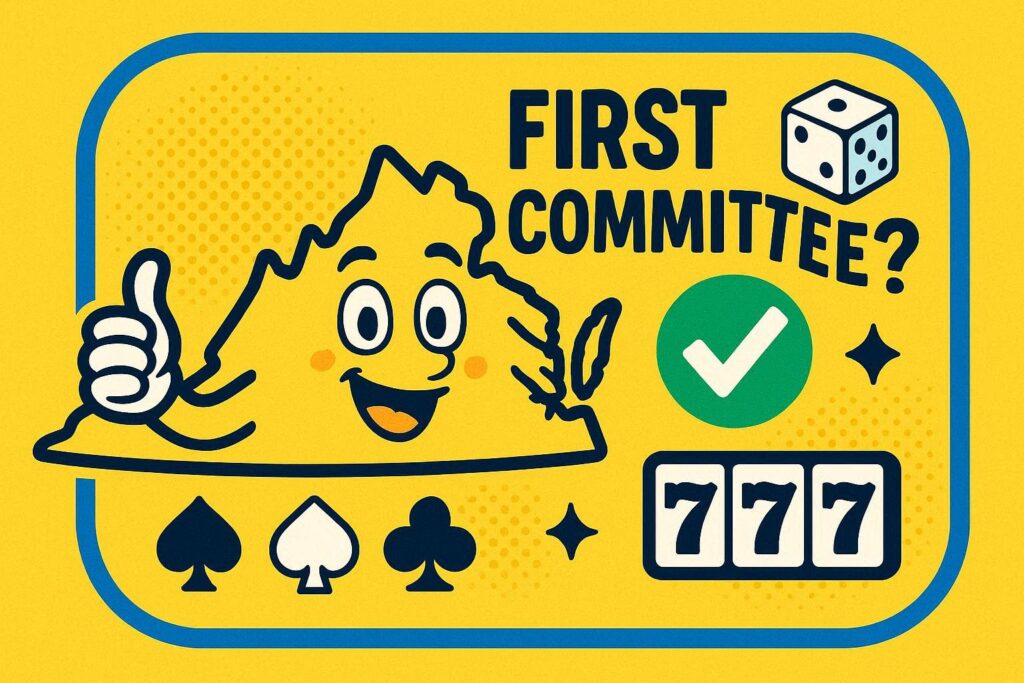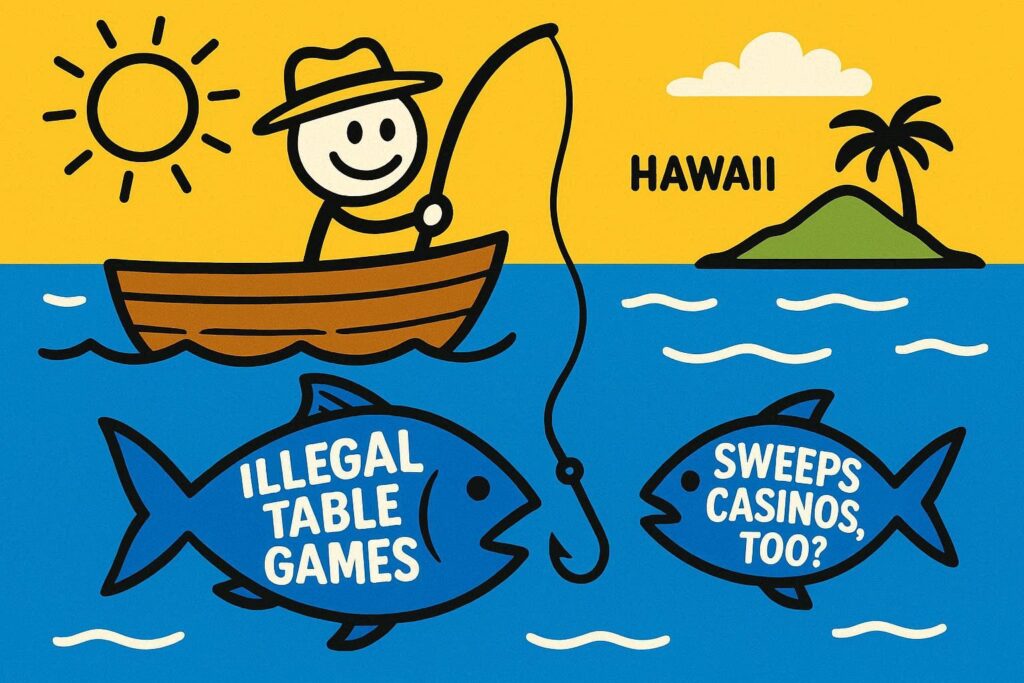California, the most lucrative state for sweepstakes casinos and the jurisdiction that, according to one leading analysis, generates nearly 20% of the sweeps gaming revenue in the United States, may soon be off limits for sweeps casinos.
That’s because Assembly Bill 831 passed the California Assembly by a 63-0 vote Friday afternoon, ending the state’s 2025 legislative session with a significant blow to the sweeps gaming industry.
AB831 bans online sweeps casinos that use the dual-currency model (Gold Coins and Sweeps Coins), and it also criminalizes any entities that “knowingly and willfully” support the industry.
Now, AB831 heads off to Gov. Gavin Newsom’s desk for his signature. He has 12 days (not including Sundays) to act on the bill once he receives it. He can sign it, veto it, or not act on it — in which case the bill would be approved (the same as if he signed it) after those 12 days.
If signed into law, AB831 would take effect Jan. 1, 2026.
Ahead of Friday’s vote, Assemblymember Avelino Valencia, the author of AB831, called the bill “a very important bill to me personally” before requesting a yes vote from his colleagues.
California’s gaming tribes, social casino apps win big
This is a major victory for two coalitions.
California’s gaming tribes, and social casino operators.
Led by the powerful and wealthy Yuhaaviatam of San Manuel Nation, California’s gaming tribes for the most part backed AB831. Their main arguments against sweepstakes casinos were that they infringed upon the tribes’ sovereignty and their exclusive right to offer gambling in California, as they deemed the dual-currency model sweeps casinos use the same thing as gambling.
In the dual-currency model, players have the option to play with Sweeps Coins, a digital token that can be redeemed for cash, and Gold Coins, which have no redeemable value. Tribes argued California residents playing casino-like games with Sweeps Coins are effectively gambling.
Social casino operators, meanwhile, and mainly Light & Wonder, threw their weight behind AB831 and have been one of the main driving forces against sweeps operators around the country as scrutiny on the industry has ratcheted up in 2025.
Light & Wonder executives say sweeps casinos amount to unlicensed online gambling due to the dual-currency model.
The Social Gaming Leadership Alliance, one of two main sweeps advocacy organizations, has maintained that the dual-currency model is not gambling and instead follows the same model as sweepstakes promotions in other legal and regulated industries.
It urged Newsom to veto AB831 following the bill’s passage Friday.
“It is incredibly disappointing that the California Assembly decided to pass AB 831,” Jeff Duncan, the SGLA’s executive director, said in a statement. “Beyond the fact that this bill would worsen economic disparities among California tribes, put California to the back of the line in terms of digital innovation in this space, and take away a popular form of entertainment for residents, it will immediately strip $1 billion out of the state’s economy.
“We implore Governor Newsom to veto this bill and instead open the door for online social games to support economically disadvantaged tribal nations and the state’s economy while positioning California as a leader in next-generation gaming technology.”
Sweeps casinos are competition to AB831 backers
It should be noted that sweeps casinos can be seen as a direct competitor to the social casino apps of companies like Light & Wonder, such as Jackpot Party Casino and 88 Fortunes. Matthew Wilson, CEO of Light & Wonder, said during his company’s quarter two investors call that the rise of sweeps casinos caused “modest declines” in revenue for Light & Wonder’s social casino arm, SciPlay, and that sweeps casinos are causing “a direct top-line impact from the growth of sweepstakes gaming in states that they are currently operating in.”
He later elaborated: “I think at this point, it’s undeniable to say that sweeps are having an impact on the social casino segment. It’s definitely a substitute. I mean in our mind, it’s unregulated, untaxed iGaming. There’s no denying that. And when we look at the data specifically around the markets where sweepstakes have been banned, you see a significant uptick in terms of social casino. So from our vantage point, there’s just no denying it’s had an impact on the social casino markets where sweepstakes is active.”
The Yuhaaviatam of San Manuel Nation, the owners of the largest casino on the West Coast, Yamaava’ Resort & Casino, and the main tribal sponsor of AB831, also operates its own social casino, Play.Yamaava.
Social casinos like Play.Yamaava and Light & Wonder’s Jackpot Party Casino stand as rivals to sweepstakes casinos for a couple reasons. One, there is significant crossover between sweeps players and social players. And two, while the ability to redeem Sweeps Coins for cash sets sweeps apart, many operators also run social versions that use only Gold Coins — putting them in direct competition with social casino apps.
So, in other words: Bad news for sweeps gaming is good news for social gaming, which benefits the main backers of AB831.
Was tribal support universal?
Not all tribes supported AB831.
In a late effort to throw a wrench in AB831’s fast track to approval, four tribes wrote letters of opposition to California lawmakers: the Kletsel Dehe Wintun Nation, Big Lagoon Rancheria, Sherwood Valley Band of Pomo Indians, and Mechoopda Indian Tribe of Chico Rancheria.
Three of those tribes even struck digital gaming partnerships with leading sweeps operators — Kletsel Dehe Wintun Nation with VGW (Chumba Casino, LuckyLand Slots, Global Poker), Sherwood Valley Band of Pomo Indians with B-Two Operations (McLuck, Hello Millions), and Mechoopda Indian Tribe of Chico Rancheria with Yellow Social Interactive (Pulsz).
Members of three tribes protested AB831 at the California State Capitol on Sept. 8.
“Our goal is to make sure that the decision makers understand the benefits of online social games for the tribes who have been historically left behind,” Eric Wright, CEO of the Kletsel Economic Development Authority, told Sweepsy. “We hope the governor will hear that message and veto what we see as a deeply unfair bill.
“We’re not asking for special treatment. We’re asking for a chance to provide for our people [with gaming revenue] the way other tribes already can. AB831 closes that door. Our mission is to open them for all tribes, not just a few.”
While the Kletsel Dehe Wintun Nation and Big Lagoon Rancheria are not gaming tribes, the Sherwood Valley Band of Pomo Indians owns Sherwood Valley Casino and is a member of the California Nations Indian Gaming Association, which endorsed AB831. In addition, the Mechoopda Indian Tribe of Chico Rancheria previously ran a casino — Mechoopda Casino — but it closed in February.
Other notable opposition to AB831 included from the California chapter of the American Civil Liberties Union and a handful of cities where some of the state’s largest cardrooms — traditionally rivals of AB831 — are located.
Gov. Newsom expected to sign
Most industry chatter suggests there’s little doubt Newsom will sign AB831 into law.
When it comes to unifying Democrats and Republicans in California, few issues generate more bipartisan support than defending tribal rights. Through its three Senate committee hearings, full Senate vote, Assembly committee hearing, and full Assembly vote, AB831 did not receive one “no” vote.
We don’t expect the momentum to halt with AB831, which was gutted and amended in June and fast-tracked through the Senate and Assembly in recent weeks, labeled as legislation written to support California’s tribes.
However, one industry voice thinks there could be a slight chance Newsom has a different reaction.
“Governor Newsom is a very smart, adept, nimble guy,” Princeton Public Affairs Group partner Bill Pascrell III, an influential gambling industry attorney, lobbyist and advisor, told Sweepsy, “and I think he appreciates the potential if this is regulated.”
According to an economic forecast created by independent gaming research firm Eilers & Krejcik Gaming, researchers projected a regulated sweeps casino market could generate more than $1.3 billion of annual economic benefit to California, including more than $300 million in sales taxes and licensing fees. The other $1 billion in economic benefit is already present in the current unregulated market via things like job creation and payments to California businesses.









